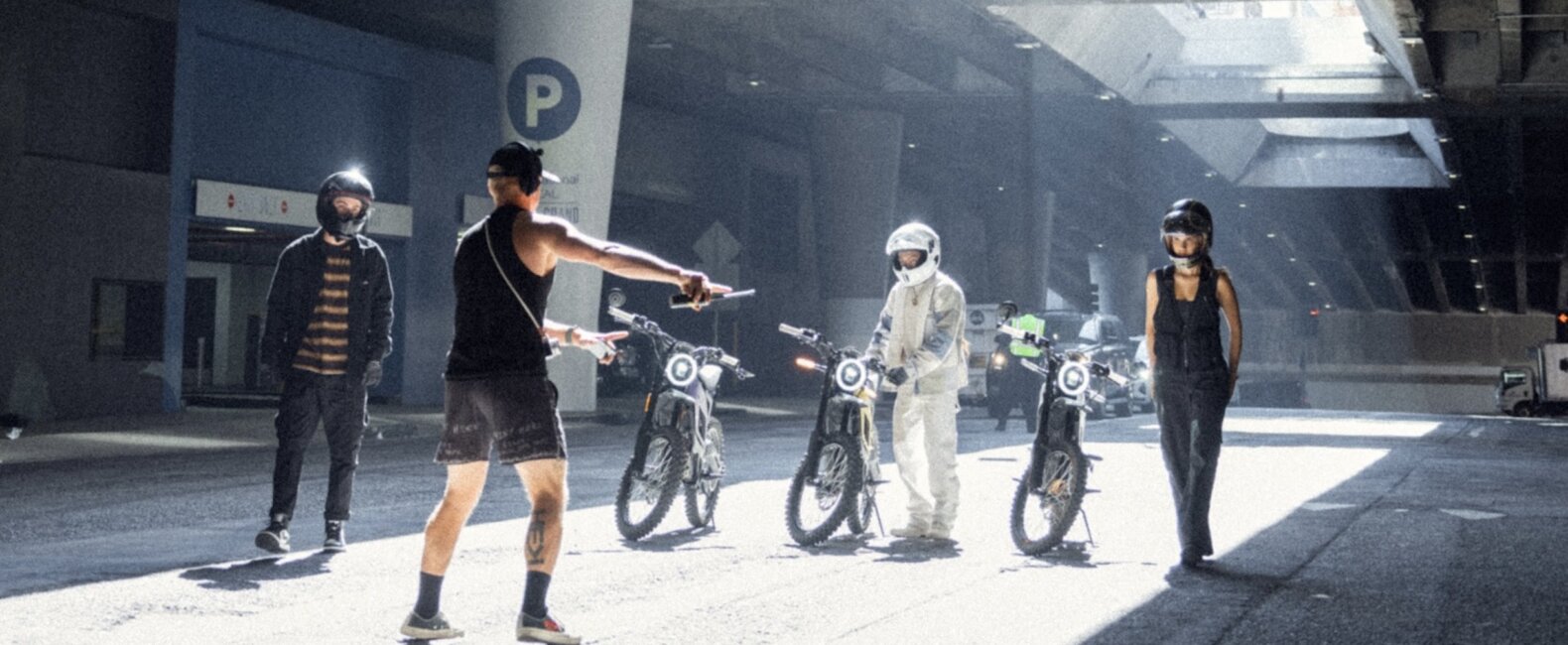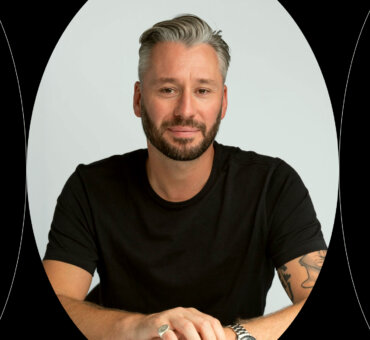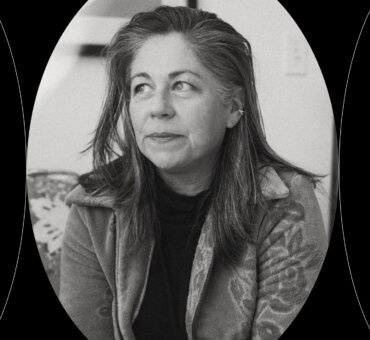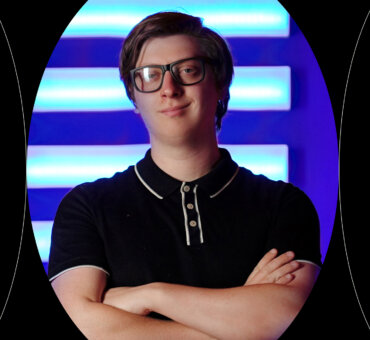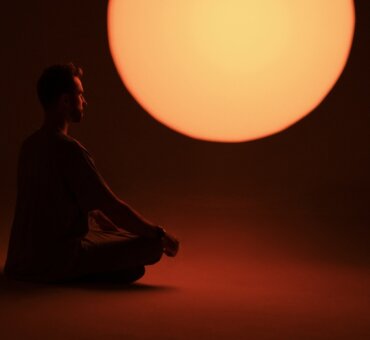Whether he’s shooting commercials or music videos for artists like the Chainsmokers, Jeremiah Davis, aka That One Blond Kid, centers his entire creative process around music. Hear more from the filmmaker on what sparked his interest in filmmaking, his favorite projects to date, and how he utilizes Musicbed to find the right songs for his films.
Musicbed: But what sparked my passion for filmmaking and storytelling?
Jeremiah Davis: I started when I was 15-16 and I was helping my brother make videos. What really sparked my passion for it was working with my brother who was my best friend and I love the idea of making other people look cool. Working with good people and making other people look cool is my driving factor. I’m very fortunate because I get to work with very talented people, helping them look cool and bring their vision to life—a lot of music artists. And I get to work with really great people. I’m in a position in my career where I don’t have to say yes to everything, and it very much comes down to the people we work with. Super awesome and very fortunate.
What keeps you motivated and creatively inspired?
For me, it’s diversity and what I’m working in. The diversity factor is the highest motivating factor to stay inspired. And also the people you work with like making sure they’re not soul-sucking are amazing. Also, working with talented people and learning from others has been a massive factor in staying creatively inspired. And then just platforms to see cool creative like curated creative expressions, whether that’s like a playlist on Musicbed or if that’s Instagram reels that friends are sending, or websites like eye candy, which has been a massive one this last year or two.
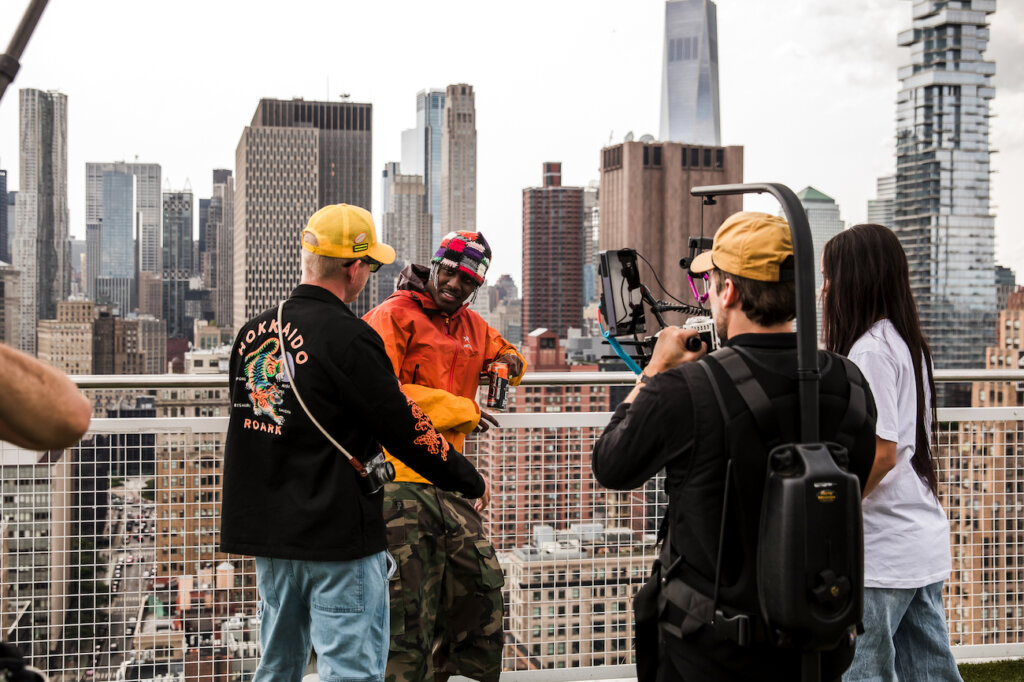
What makes a story visually appealing? What role does music play in storytelling?
Music is more important than the storytelling part. We see so many stories online and everyone’s given it their best. And I don’t tell a lot of stories in my videos. I do more like a stylistic approach and that’s because I’m so unimpressed with most of the world’s ability to tell stories. It’s a hard thing. It’s a difficult thing. And for some reason, everyone thinks that they can do it and everybody is a storyteller, but not everyone is the best at it. And nor do I think it should actually go out. So that’s a hot take. But what makes it appealing? It’s making you connect with the visuals and that can be done through music and that can be done through amazing acting and that can also be done through amazing voiceovers and scripts. But if you can’t connect with the person, then it doesn’t matter to me.
What role does music play in storytelling?
If you can’t feel a connection to them to the person you’re seeing or the story that you’re learning about, then they, you know, it’s out the window, it’s not a good story. And music is one of the most impactful ways to make people feel me specifically, it’s a massive motivating factor for me. It makes me feel a certain kind of way when I go into editing a video or filming a project. And so like the music is that like emotional driving factor and, and controls my whole process.
What elements do you think are essential for crafting a compelling story?
Kind of already hit on that, but it’s music, it’s music and feeling. And that can be done through very cinematic shots that can be done through UGC iPhone clips that feel very authentic and make you connect with somebody. But no matter which way you visually show it. The music is a massive motivating factor here.
How important is music in your work?
It’s one of the main motivating factors. I even got into making videos for commercials or a job and a living because I actually went into the music industry. I’ve toured with over 47 artists and I filled up three passports in three years. I’m working on my fourth passport now purely around just music, travel, traveling with music artists and my passion was wanting to make cool videos to really big songs and records and now I get a tour with a lot of music artists or shoot music videos. I get to use their amazing music and so that’s like so much fun for me. On the brand side, the hardest part isn’t having good music and that’s soul-sucking when you don’t have music. And so platforms like Musicbed have been like a blast to use and it’s only getting better, which has been awesome to see. It’s making the creative burnout less frequent because there are more resources to tap into if that makes sense.
What advice would you give other filmmaker creators starting their careers?
Make my videos for yourself, and then you can adjust from there. If you’re working with other people, great. But that was advice that was given to me, to do what you want to do because at the end of the day, most people say they want one thing, and you should try to do that one thing, but ultimately make it your own that way you’re setting yourself up for success, right? If you do what you want to do and it gets approved, then you made the video you want to make, if you’re making what you think other people want, whether that’s just like an Instagram reel or what your client wants, then you’re just delivering something that’s right off the bat, something that’s not what you’re excited about. And it’s tricky and when, if you’re working with clients, you have to do what they want, but I believe there’s always something, there’s always room, to add your spice to it and elevate it. And you know, people burnt out, don’t go that extra mile, and eventually, that just contributes to your burnout because you’re not doubling down on stuff you’re excited about. So advice there, do what you want to do. Ask yourself, what do you want to make and do that?
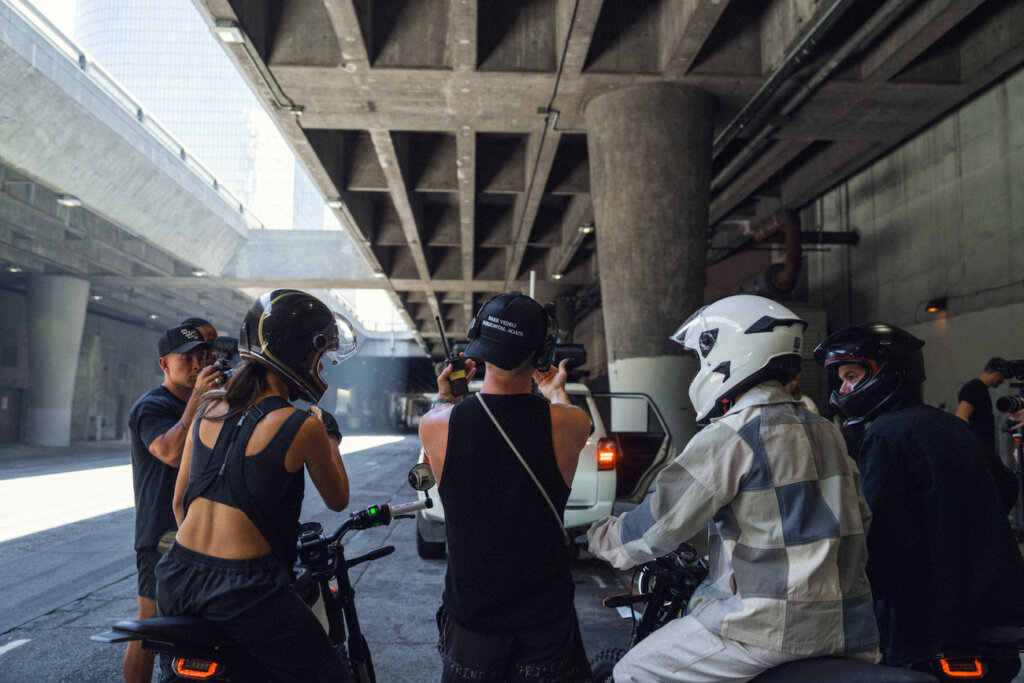
What is the most challenging aspect of being a filmmaker and a creative?
The most challenging thing is the overbearing weight or expectation that you need someone to tell you what to do. Our whole life we are told to go to school and then you go from high school to college or you get a job and people tell you what you’re supposed to do your whole life. And then when it comes to our own time, we don’t know how to do it. We need someone to tell us it’s okay or we need someone to pay us to get started. The flip side is if you get hired full-time and someone’s telling you what to make, the first thing you’re going to wanna do is say, ‘Man, I wish I had time to do what I wanted to do.’ So if you’re not booked and busy, make a project, set a timeline, and get after it and that’s challenging. But it’s also a self-respect thing. Respect yourself enough to set a project in a timeline and hold yourself accountable.
How do you balance pushing boundaries creatively and delivering what your client or audience wants to see?
I think going the extra mile, if it’s for a client, we get burnt out by what they want. Ultimately over the versions if you do multiple passes on a video. We think V1 should be 50% version or 70% version and the most rewarding projects I’ve worked on are where I submit the V1. And that’s what I think the final video should be, take the V1 to the full version of what you think it could be because then you’re setting yourself up for success to have that approved and it goes live and then you get hired again to do exactly that, which is what you want it to be. But then if the client needs to reiterate or make notes, then give that to them and let them run with it and make it their own. But for social, your audience understands what your audience is. And what they want. And that’s not what the algorithm wants, right? If you have 1,000 followers, what do those people want? And if you have 1000 followers, what is the audience you want to cultivate? I want an audience to watch me for doing crazy adventures that are very unique. Then do that, but don’t do short-form content—that is soul-sucking and you feel like you’re just playing the algorithm game because that’s ultimately not what you want to do.
What is the most challenging aspect of being a filmmaker/creative?
The ‘getting started’ part.
Describe some of your favorite projects.
Some of my favorite projects have been the outdoor adventure integrated. So I was just a part of a five-day music video shoot. I wasn’t even the director. I got to be a part of it, but it was in Jackson Hole and it had all of these outdoor adventure elements like snowboarding and skiing and skijoring, which is basically being pulled by a horse on snow while you’re on a snowboard or skis. We were snowmobiling. We were just doing active stuff in the snow while also shooting for a music video, which was awesome.
Another client that was one of my favorite projects last year was working with an AE motorcycle brand that was launching three different bikes. And we got a shoot in Utah for three days and in Los Angeles for three days. We shut down one of the most iconic bridges in Los Angeles with a police escort. And we also got to run around Utah and be shown around by a lot of really talented local filmmakers that just knew the place well. They knew how to shoot well. And me as a director to work with people that were so passionate, so capable, in harsh environments and just so excited to be in those environments was electric for us. We were doing what we loved. We were doing stuff in nature and we were kind of focused around action sports and the end product was just so fun. It was so rewarding for everybody. The final product was amazing. That was really great.
How do you search for music on Musicbed?
My flow is to go on the new releases or the New Discover page. I start there and I look at the genres and I play the songs I think are the genres I’m looking for. And then once I start finding things specific to a genre of like, ‘Oh yeah, this song is amazing. Cool.’ Then I go to the filters. I type those genres in and then I look at the bigger archive of music within those genres. That’s typically how I found my best music. I actually just licensed a song today for a project that we’ve got coming out with Movado Watches. And the client said we had never been presented with such powerful music. They are very excited, and the funniest part is that the head of the brand said ‘I’ve been bumping this song all day and it’s awesome and we’re throwing a little twist on it. We’re actually gonna speed it up 1.2x to give it a bit of a high-pitch vibe,’ which has been really fun.
Why do you use Musicbed in your work?
It’s just easy. People need good music, and they need it fast. There’s tight turnarounds and Musicbed is this infinite collection of music that’s getting better and better by the day. You just have peace of mind knowing that it’s cleared and approved and you’re allowing yourself to be presented in a professional light that doesn’t involve stealing music from artists.
–
Explore a curated playlist of Jeremiah’s favorite songs to feature in his films—all available to license only on Musicbed.















































































